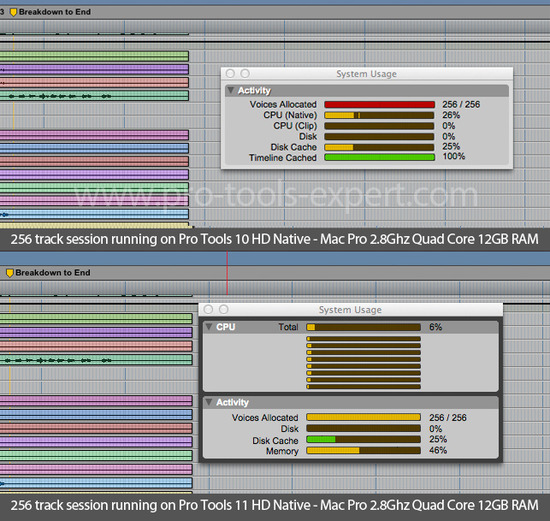Pro Tools 11 "Exponential Gains" Claims - Marketing Hype Or Real?
When Pro Tools 11 was announced, one of the claims made was ‘exponential performance gains’ - a claim immediately seized on by my friend and vastly superior writer Peter Kirn over at Create Digital Music. Peter said, “As for the announcement, the marketing copy also starts with a peculiar marketing claim: “Get exponentially more processing power than Pro Tools 10 using the same hardware.” It’s hard to know where Avid would find exponential performance gains, unless they know a different meaning of the word. A 64-bit engine, for instance, generally offers marginal, not exponential gains. It seems there is a new engine users are happy with, but there would have to be something horribly wrong with the previous engine for the new one to be exponentially faster on the same hardware architecture.”
This week, we got a chance to see Pro Tools 11 in action. Something to be noted immediately is that the copy we were shown is a beta version, so some work still has to be done before the final GM (Gold Master) sees the light of day. Therefore, it wouldn’t surprise us if the performance is even better in the final public release; if nothing else, it won’t be any worse.
That said, what we were shown was impressive by any standard.
Not being a mathematician, I decided to investigate the whole area of exponential theory. From what I can gather, it simply means an exponential curve shows a far greater increase than a linear curve. So take a look at the graphic showing the same session on the same Mac, but one opened in Pro Tools 10.3.5 and the other on a beta copy of Pro Tools 11. Call it what you like (if you don’t think it’s exponential, I’m not going to have a battle of semantics), but in my words after having seen it in action with the performance gains I witnessed, I would have written different ad copy, to wit:
“Pro Tools 11 gives f*****g awesome improvements in performance”.
This probably explains two things: firstly, why I don’t work for Avid in their marketing department, and secondly, why Avid chose the word ‘exponential’.
In response to Peter’s final consideration, “[T]here would have to be something horribly wrong with the previous engine for the new one to be exponentially faster on the same hardware architecture.”… there was!
